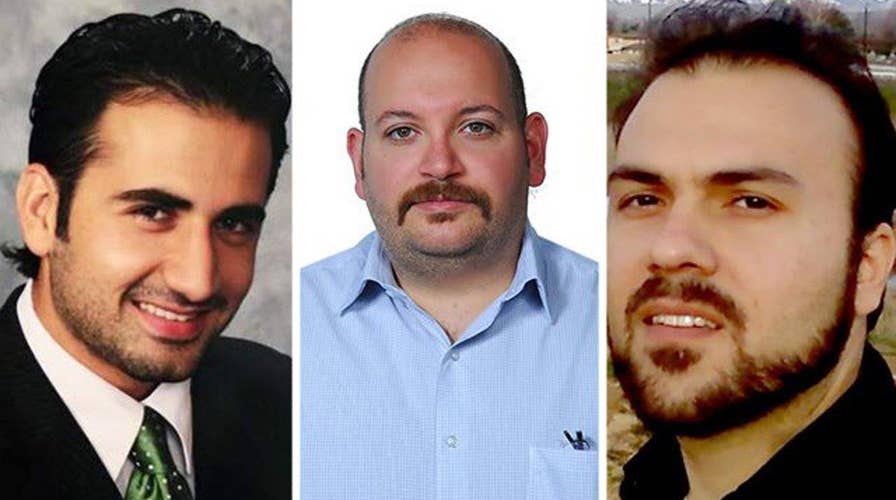President Obama said Sunday that “smart, patient” U.S. diplomacy led to the recent breakthroughs with rival nation Iran, including this weekend’s hostage exchange and landmark nuclear deal.
“This is a good day because now we see what’s possible with good American diplomacy,” Obama said from the White House. “Now our governments are talking to each other.”
The president spoke one day after Iran fulfilled its obligations in the international nuclear deal that will lift crippling economic sanctions and allow Tehran to recoup $100 billion in frozen assets, in exchange for Iran curtailing its pursuit of a nuclear weapon.
“Under the nuclear deal, … Iran will not get its hands on a nuclear bomb,” Obama said. “The region, the United States and the world will be more secure.”
The deal was announced hours after the countries said four U.S. detainees in Iran would be returned in exchange for seven Iranians being allowed to leave America.
Obama administration officials acknowledged that the negotiations played out in the shadows of the nuclear talks but said the outcomes of the separate deals did not depend on each other.
GOP presidential candidate New Jersey Gov. Chris Christie disagreed with the president's argument that the deals are a win for "smart diplomacy."
"This is a loss for America," Christie said on the campaign trail in Iowa. "It's a win for the president's own delusions, if he thinks this is a win for smart diplomacy."
Obama also said the deals -- along with the situation last week in which Iran promptly released 10 American sailors who had sailed into Iranian waters -- prove that a “smart, patient and disciplined” diplomatic approach can work with Iran and other long-standing adversaries.
He argued that the improved relations also helped resolve a long-standing financial dispute with the countries that will allow Iran to recoup about $400 million and roughly $1.3 billion in interest.
“It saves us billions of dollars,” Obama said. “We had no business dragging this out.”
However, he failed to mention that the U.S. on Sunday imposed new sanctions against 11 individuals and entities involved in Iran's ballistic missile program, as a result of Tehran's firing of a medium-range ballistic missile in October.
U.S. officials have said the Treasury planned to announce the penalties in late December but held off after Iran's foreign minister said they could have derailed the prisoner exchange that took place this weekend.
The five Americans released Saturday are Washington Post reporter Jason Rezaian, former U.S. Marine Amir Hekmati, pastor Saeed Abedini and Nosratollah Khosravi-Roodsari.
With the exception of Khosravi-Roodsari, they boarded a Swiss air force plane that landed Sunday in Geneva and they were expected to fly later to a U.S. air base in Germany.
A fifth American, student Matthew Trevithick, was released independently of the larger swap and already had headed home.
The Post's publisher, Frederick J. Ryan, Jr., said in a statement, "We are relieved that this 545-day nightmare for Jason and his family is finally over."
In exchange, the U.S. is pardoning or dropping charges against seven Iranians -- six of whom are dual U.S.-Iranian citizens -- accused or convicted of violating U.S. sanctions.
Three were serving prison terms and received a commutation or pardon. Three others were awaiting trial; the last one made a plea agreement.
In addition, the U.S. was dropping drop Interpol "red notices" -- essentially arrest warrants -- on 14 Iranian fugitives it has sought, officials said.
Kerry said U.S. officials hashed out the prisoner exchange over 11 or 12 meetings with the Iranians. He also said the nuclear agreement provided the key impetus.
The swap did not include Siamak Namazi, an Iranian-American businessman who advocated better ties between Iran and the U.S. and who reportedly was arrested in October, or former FBI agent Robert Levinson, who disappeared in Iran in 2007 on an unauthorized CIA mission.
Asked if Levinson was dead or alive, Kerry said, "We have no idea."
The Associated Press contributed to this report.
.













































